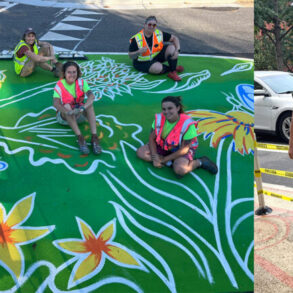News
Jun 09, 2025

An art dealer from London has been sentenced after admitting eight counts of failing to make a disclosure during the course of business within the regulated sector, contrary to section 21A of the Terrorism Act 2000.
Oghenochuko Ojiri was sentenced to two years and six months’ imprisonment, after an investigation by officers from the Met’s Counter Terrorism Command revealed £140,000 of sales to a suspected financier of the proscribed group Hizballah.
Ojiri was arrested in Wrexham on 18 April 2023, the same day the UK Government announced sanctions against Nazem Ahmad, a wealthy art collector, based in Lebanon, suspected of providing funding to Hizballah.
Officers subsequently obtained a warrant to seize a number of artworks belonging to Ahmad held in two UK-based warehouses. The artwork was seized on 4 May 2023 and the National Terrorist Financial Investigation Unit (NTFIU) obtained a forfeiture order later the same year.
The artwork, including a Picasso and Andy Warhol paintings, is valued at almost £1 million and is due to be sold with the funds reinvested back into the police, CPS and Home Office.
The Met’s investigation was assisted by US Homeland Security, which is conducting a wider investigation into alleged money laundering by Ahmad using shell companies.
Officers from the NTFIU investigated invoices for sales of art by Ojiri and identified that eight purchases were completed with names inserted on the invoices that were not Ahmad’s – but Ojiri did know that the sale was being conducted for him and on his behalf.
The art market was regulated under Anti-Money Laundering regulations in 2019 – bringing it in line with with other regulated sectors such as banking and solicitors.
People who operate in the art market, like gallery owners, must be registered with the HMRC as an Art Market Participant (AMP), undertake due diligence and report any suspicions of money laundering or terrorist financing.
WhatsApp messages were found on Ojiri’s mobile phone from 31 January 2020, which showed him discussing the new money laundering regulations with a colleague. There was also further evidence on his phone that he was aware of the financial sanctions by the US Treasury against Ahmad due to his suspected involvement in being a high-level financier of Hizballah.
Commander Dominic Murphy, head of the Met’s Counter Terrorism Command, said: “This prosecution, using specific Terrorism Act legislation, is the first of its kind and should act as a warning to all art dealers that we can, and will, pursue those who knowingly do business with people identified as funders of terrorist groups.
“Oghenochuko Ojiri wilfully obscured the fact he knew he was selling artwork to Nazem Ahmad, someone who has been sanctioned by the UK and US Treasury and described as a funder of the proscribed terrorist group Hizballah.”
Bethan David, Head of the CPS Counter Terrorism Division, said: “It is clear that Oghenochuko Ojiri was aware of new money laundering regulations in the art world and that he had knowledge of Nazem Ahmad’s background.
“Ojiri engaged in activity designed to conceal the identity of the true purchaser by changing the details on invoices and storing Mr Ahmad’s name under a different alias in his mobile phone.
“His motivation appears to be financial along with a broader desire to boost his gallery’s reputation within the art market by dealing with such a well-known collector.
“This prosecution is believed to be the first of its kind, and the CPS will not hesitate to bring criminal charges against individuals who flout the law in this way.”
This post was originally published on this site be sure to check out more of their content







